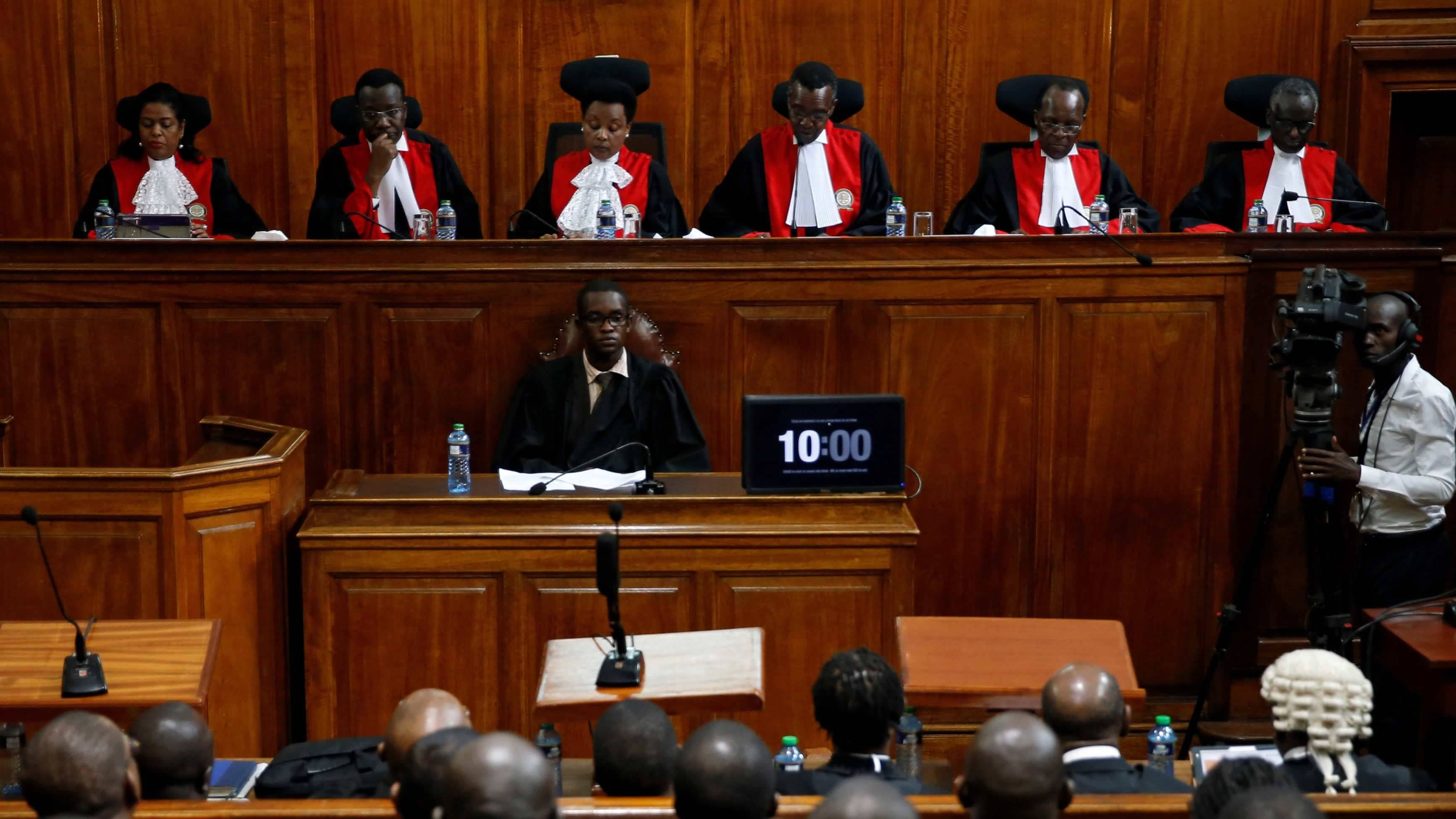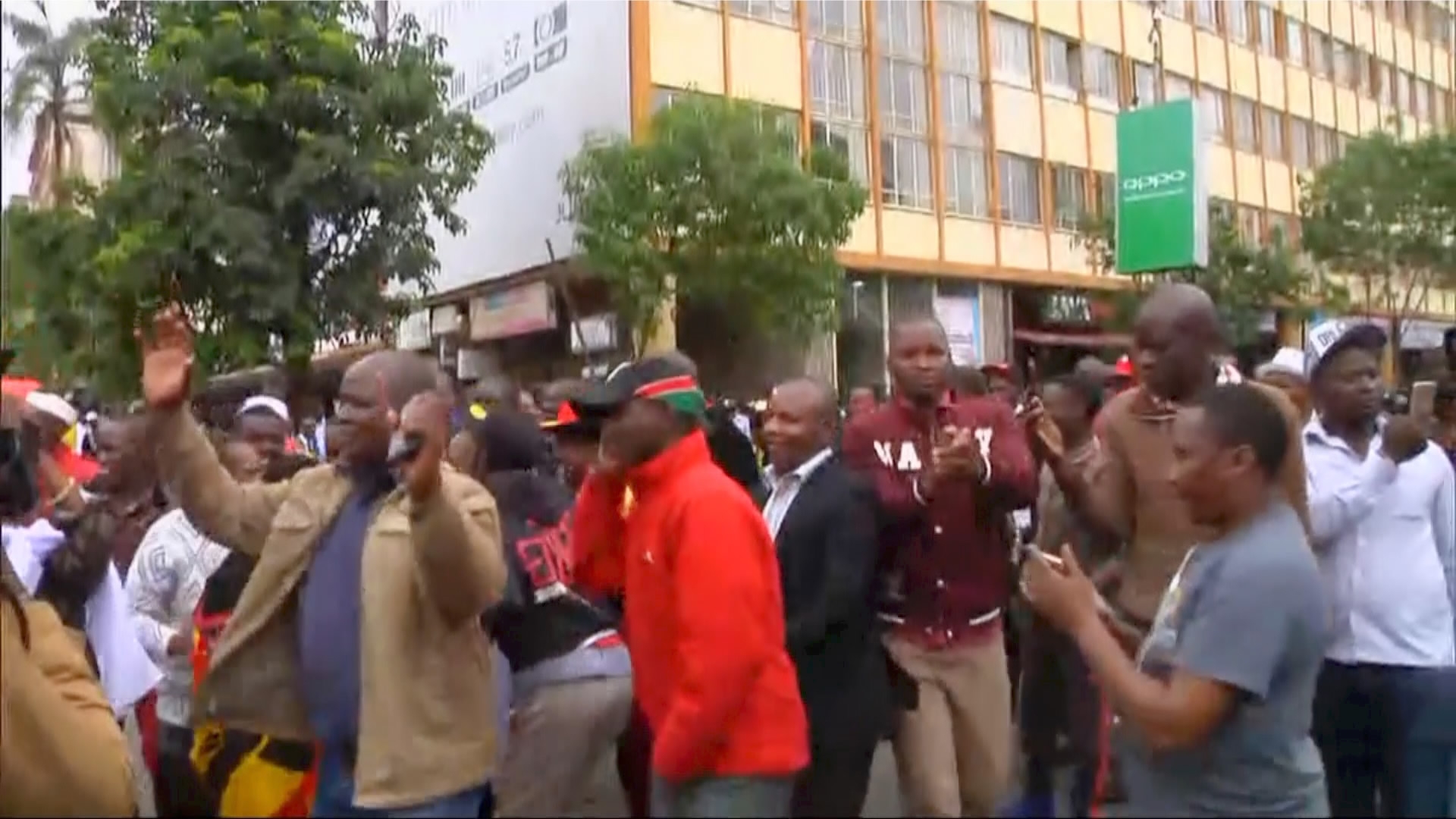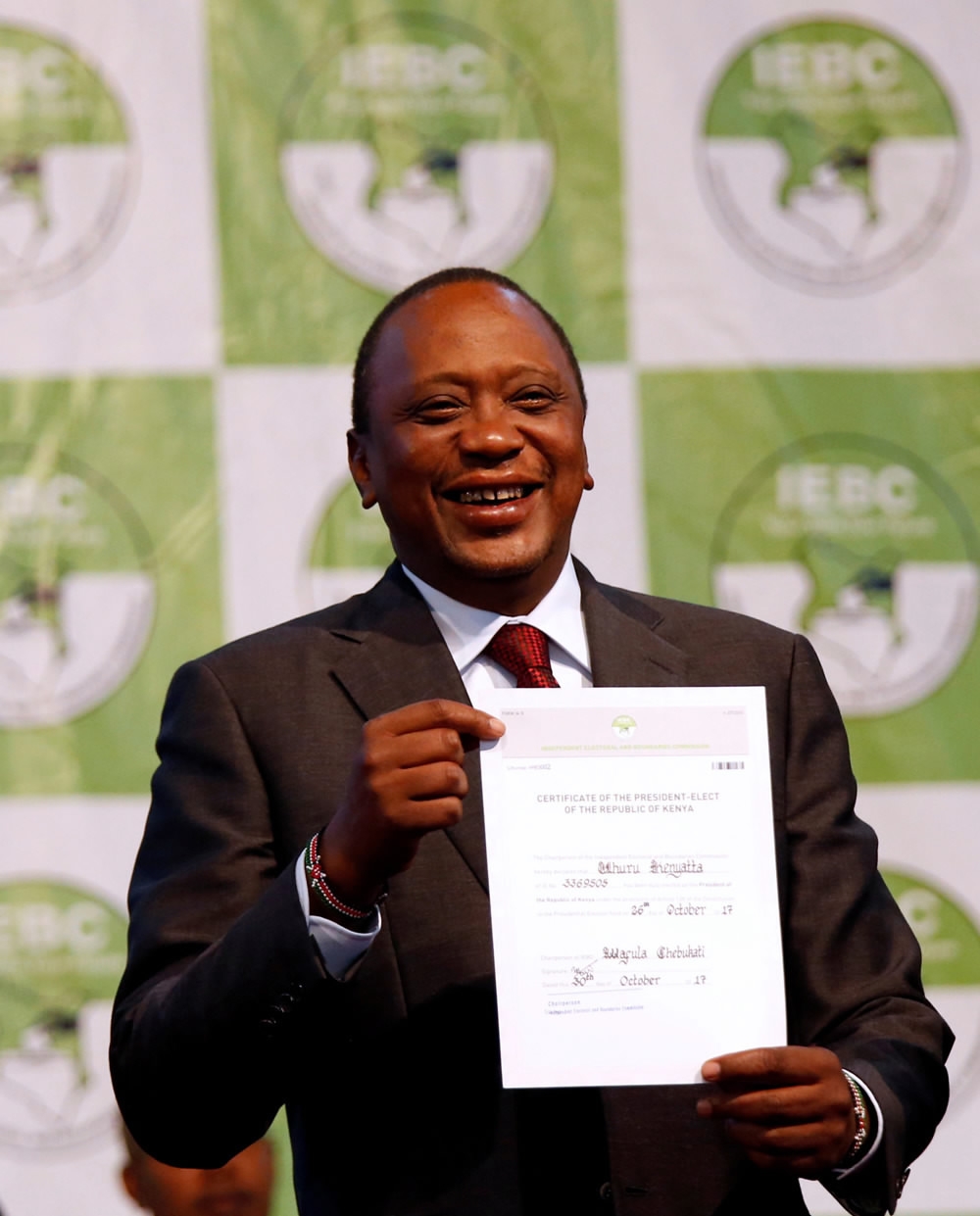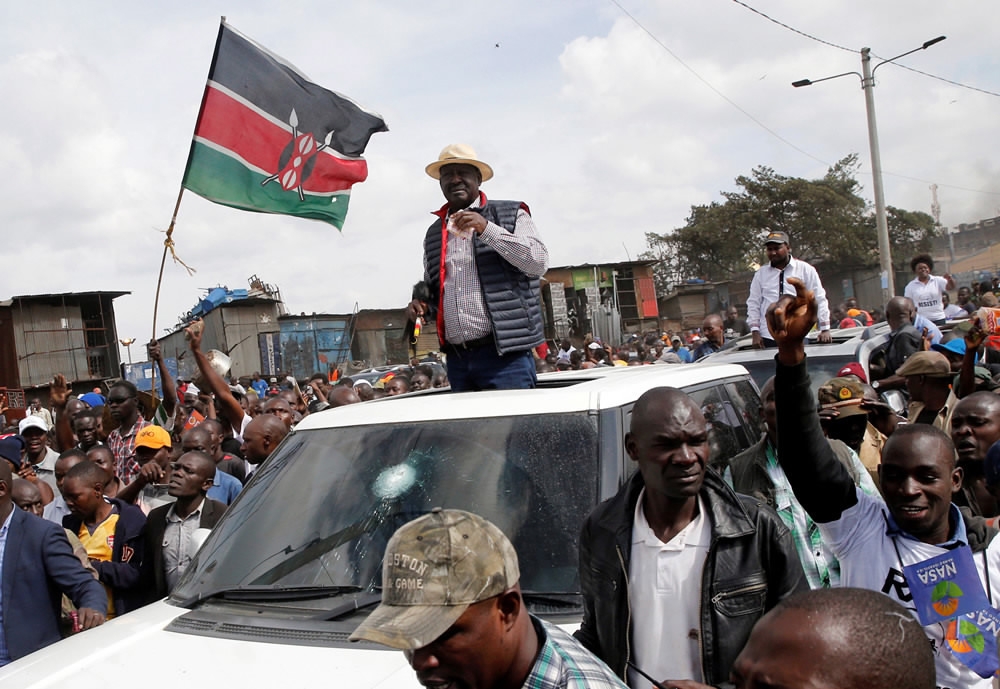
Politics
15:45, 20-Nov-2017
Kenya's Supreme Court upholds Kenyatta victory in October election
CGTN

Kenya's Supreme Court on Monday upheld the re-election of President Uhuru Kenyatta in last month's repeat presidential vote, dismissing two legal challenges to the vote in a unanimous decision by six judges.
The vote was widely boycotted by the opposition and denounced by veteran opposition leader Raila Odinga as a sham.
"The court has unanimously determined that the petitions are not merited. As a consequence, the presidential election of 26 October is hereby upheld as is the election of the third respondent," said Chief Justice David Maraga, referring to Kenyatta.

The ruling paves the way for Kenyatta to be sworn in on November 28.
The petitioners had argued, amongst other reasons, that the outcome should be voided because the election board did not seek fresh nominations after the earlier August 8 poll was invalidated, and because the vote was not held in each of Kenya's 291 voter constituencies.
Kenyatta's landslide victory marred by low turnout
Maraga in September annulled the August 8 election due to "irregularities and illegalities." However, the decision, a rare victory for Odinga, only deepened acrimony and protests that have left 52 dead since the first election.

Incumbent President Uhuru Kenyatta holds the certificate of President-Elect of the Republic of Kenya after he was announced winner of the repeat presidential election. /Reuters Photo
Incumbent President Uhuru Kenyatta holds the certificate of President-Elect of the Republic of Kenya after he was announced winner of the repeat presidential election. /Reuters Photo
Odinga withdrew from the October ballot which he urged his followers to boycott, saying it would be unfair because the election commission had failed to implement reforms.
The boycott handed Kenyatta a landslide victory of 98 percent, although voter turnout was only 39 percent.
In the run-up to the vote, a top election official fled the country, saying the poll would not be credible, and Wafula Chebukati, chairman of the Independent Electoral and Boundaries Commission (IEBC), said he could not guarantee a free and fair election.
Election day was marred by chaos in opposition strongholds, with polling stations unable to open in 25 constituencies.

Kenyan opposition leader Raila Odinga attends a protest in Nairobi, Kenya November 17, 2017. /Reuters Photo
Kenyan opposition leader Raila Odinga attends a protest in Nairobi, Kenya November 17, 2017. /Reuters Photo
Odinga: Court decision 'taken under duress'
News of the court's decision sparked celebrations in Kenyatta's strongholds. But while many will be breathing a sigh of relief that the four-month election process is drawing to an end, tensions remain high and it was unclear how Odinga's supporters would react to Kenyatta being sworn in.
In a statement, Odinga said the ruling "did not come as a surprise," nor did it alter his opposition to a government he regards as illegitimate.
"It was a decision taken under duress. We do not condemn the court, we sympathize with it," he said.
9225km
Source(s): AFP
,Reuters

SITEMAP
Copyright © 2018 CGTN. Beijing ICP prepared NO.16065310-3
Copyright © 2018 CGTN. Beijing ICP prepared NO.16065310-3